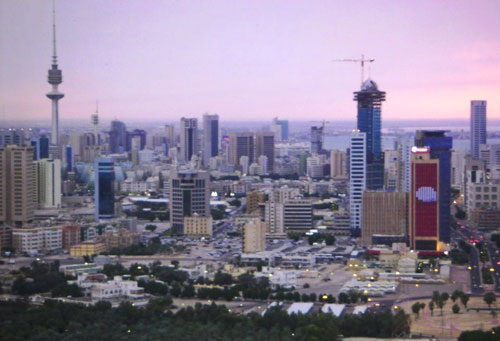India said Tuesday it is looking to help its expatriate workers in Kuwait who would be affected by the Gulf nation’s decision to reduce the number of its overseas workers even as 72,000 Indians have applied in neighbouring Saudi Arabia for Emergency Certificates to return home over the kingdom’s new work policy.
Kuwait, where around 700,000 Indians work, has announced a policy ro reduce the number of its expatriate workers over a 10-year period. The Kuwaiti government’s policy would affect only those workers who have invalid visas, said external affairs ministry spokesperson Syed Akbaruddin at a briefing at Delhi.
Explaining, he said those Indian workers who had entered on a domestic worker visa but took up a job in a different category would be affected.
He said the Indian embassy there was working to help the affected Indian workers and added that the measure was “not targetted at Indians” who comprise the largest expatriate workforce. The embassy there has issued around 8,00 Emergency Certificates to Indian workers. The Kuwait government has offered to pay for the return airfare of the Indian workers till Mumbai. The Indian embassy will pay the Indians the remaining amount that they need to go from Mumbai till their home destination, he informed.
In neighbouring Saudi Arabia, where 2.8 million Indians work, the Indian embassy has issued Emergency Certificates to 72,000 Indians to help them return home.
According to Akbaruddin, India has taken up with Saudi Arabia the Nitaqat issue, under which it is mandatory for local companies to hire one Saudi national for every 10 migrant workers, at both the political and local level.
External Affairs Minister Salman Khurshid had visited Saudi Arabia on May 24-27, the first visit by an Indian foreign minister in the last five years, during which he had discussed the kingdom’s Nitaqat work policy with the authorities.
His visit followed that a high level Indian delegation, led by Overseas Indian Affairs Minister Vayalar Ravi, to the kingdom to discuss with the Saudi labour ministry how to help the Indians who would be affected.
Akbaruddin said the Nitaqat law is not targetted at Indians and the Saudi authorities have praise for the Indian workers.
The embassy at Riyadh and the consulate at Jeddah has been working to help the Indians by setting up help desks and employing volunteers to assist the Indian workers.
The kingdom had announed in April a three-month grace period which would end July 3. The spokesperson said he did not have any exact figures of how many Indians would be affected.



